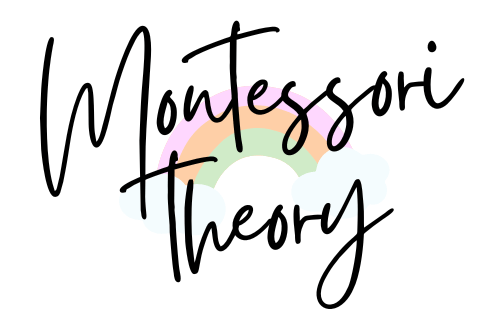The process of learning a new language can be overwhelming, and many parents are overwhelmed. However, it doesn’t need to be difficult! You’ll be able to get back to basics using basic vocabulary that children can apply right away. When you break down the words into simple phrases, you’ll be able to begin to hear your child speak in Spanish earlier than you think.
The ability to learn this language will enable your child to begin opening to the world that surrounds them. It’s widely spoken in many countries and is used in a variety of situations. If you begin taking the first steps to learning Spanish now, you’re giving your child to explore across the globe while they’re still young and broaden their worldview in ways you’ve only imagined.
This article will take a look at some of the most basic Spanish terms and phrases that your child should begin using as soon as they start learning this language at home or in school. We’ll also discuss how to introduce these phrases and words correctly to help your child master the language.
Key Takeaways
- The Montessori method makes learning Spanish engaging for children, focusing on immersive, hands-on experiences.
- Starting with basic vocabulary and phrases is crucial, allowing children to quickly start communicating in Spanish.
- Parents can aid learning by speaking Spanish at home and creating a language-rich environment.
- Exposure to Spanish media and interaction with Spanish speakers enhances language acquisition.
- Montessori’s approach includes cultural immersion, enriching children’s understanding of Spanish and its global importance.
The Montessori Approach to Learning Spanish and Other Languages
In the Montessori educational framework, acquiring language skills, including reading, writing, and especially learning foreign languages like Spanish, is approached with a blend of creativity and practicality. Unlike traditional methods, Montessori encourages children to explore and understand languages in a natural, engaging way.
This immersive experience starts with foundational language skills, using tactile materials like sandpaper letters for English and extends to foreign languages, focusing on Spanish for kids. Through interactive materials and activities, children learn to associate the physical shapes and sounds of letters in both their native and foreign languages, like Spanish, with their meanings.
Reading and writing are developed as interconnected skills, where children are not just memorizing but truly understanding and enjoying the language. Additionally, the Montessori method emphasizes cultural immersion, allowing children to experience Spanish not only as a language but as an avenue to explore and appreciate a rich cultural heritage. This holistic approach makes learning Spanish and other languages an exciting part of their daily life, cultivating not just linguistic ability but also a global perspective and cultural sensitivity.
The Benefits of Learning Spanish
Because children learn language naturally and effortlessly, they can be able to learn Spanish quickly. This is due to the fact that they have already a strong knowledge of their native language. They’ll be able talk about the same concepts they’re familiar with in a foreign language easier than other speakers and won’t be under pressure to learn it.
Even if the child has not studied the study of a different language You will witness their ability to learn quickly and speak with confidence. Learning Spanish is an incredible experience. It doesn’t matter if you want to learn about the new cuisine and culture or meet new places and people that you can’t get enough of, studying Spanish will help you blend everywhere in the world.
These are some of the advantages to learning Spanish:
- It will help your child learn the language they speak since it breaks each word into syllables. It also gives an image of how words form. When they’ve learned the fundamentals of Spanish and Spanish, they’ll be able to comprehend how to write and read in their language of origin.
- They can comprehend new culture better because a variety of people use this one language for the first time (or at times, only).
- It lets your child be more social with others because Spanish is spoken by a large number of people around the world (especially within Central as well as South America).
- It will help your child to understand why certain languages are alike and some are distinct; they will recognize the similarities among Spanish and their own language, which they might never have observed.
- You child will be able to understand Grammar rules in the language they speak This is due to the fact that Spanish follows the same basic rules as other languages.
Spanish Base Vocabulary For Kids
To begin, you’ll need to begin by learning the basic phrases and words. These are phrases and words which are frequently used and in every day life. This is crucial for your child’s start studying Spanish. Once they master these they’ll be able to make sentences without thinking. It’s also a great method to keep them engaged in the subject since they’ll see immediate results.
Basic Spanish Conversation For Kids
- Hola – Hi/Hello
- Adiós – Bye
- Buenos días – Good morning
- Buenas tardes – Good afternoon
- Buenas noches – Good night
- Hasta mañana – See you tomorrow
- Hasta pronto – See you soon
- Por favor – Please
- Saludos – Greetings
- ¿Cómo estás? – How are you?
- Muy bien, gracias – Very well, thank you
- Gracias – Thank you
- De nada – You’re welcome
- Nos vemos – See you
- Hasta luego – See you later
Easy Spanish Expressions For Kids
- Sí – Yes
- No – No
- Gracias – Thank you
- De nada – You’re welcome
- Estoy bien – I’m fine
- Mi nombre es – My name is
- Ayuda – Help
- Te quiero – I love you
- Soy alérgico/a – I’m allergic
- Tengo hambre – I’m hungry
- Tengo sed – I’m thirsty
- ¿Cómo te llamas? – What’s your name?
- Estoy feliz – I am happy
- Estoy triste – I am sad
- Estoy cansado/a – I am tired
- Tengo frío – I am cold
- Tengo calor – I am hot
- ¿Puedo ayudar? – Can I help?
- Lo siento – I am sorry
- ¿Dónde está…? – Where is…?
Easy Spanish Questions For Kids
- ¿Cuál es tu nombre? – What is your name?
- ¿Qué hora es? – What time is it?
- ¿Qué es eso? – What is that?
- ¿Cómo estás? – How are you?
- ¿Quieres jugar? – Do you want to play?
- ¿Puedo ir? – Can I go?
- ¿Cuántos años tienes? – How old are you?
- ¿De dónde eres? – Where are you from?
- ¿Puedo ir al baño? – Can I go to the bathroom?
- ¿Qué día es hoy? – What day is it today?
- ¿Puedes repetir? – Can you repeat?
- ¿Me puedes ayudar? – Can you help me?
Easy Spanish Words About Family
- Mamá – Mom
- Papá – Dad
- Hermano – Brother
- Hermana – Sister
- Abuela – Grandmother
- Abuelo – Grandfather
- Primo/Prima – Cousin
- Tío – Uncle
- Tía – Aunt
- Bebé – Baby
- Niño/Niña – Boy/Girl
- Esposo/Esposa – Husband/Wife
- Nieto/Nieta – Grandson/Granddaughter
- Sobrino/Sobrina – Nephew/Niece
Easy Spanish Words For Days & Seasons
- Hoy – Today
- Mañana – Tomorrow
- Ayer – Yesterday
- Fin de semana – Weekend
- Primavera – Spring
- Verano – Summer
- Invierno – Winter
- Otoño – Fall
- Navidad – Christmas
- Vacaciones – Vacation/Holidays
- Lunes – Monday
- Martes – Tuesday
- Miércoles – Wednesday
- Jueves – Thursday
- Viernes – Friday
- Sábado – Saturday
- Domingo – Sunday
- Cumpleaños – Birthday
- Año Nuevo – New Year
Easy Spanish Words For School
- Profesor/Profesora – Teacher
- Compañeros de clase – Classmates
- Salón – Classroom
- Escuela/Colegio – School
- Cuaderno – Notebook
- Libro – Book
- Lápiz – Pencil
- Colores – Colors
- Tijeras – Scissors
- Papel – Paper
- Escritorio – Desk
- Silla – Chair
- Tiza – Chalk
- Pizarra – Blackboard
- Bolígrafo – Pen
- Goma – Eraser
- Cartulina – Cardboard
- Pinturas – Paints
- Regla – Ruler
Easy Spanish Words For Home
- Casa – House
- Cuarto – Bedroom
- Bano – Bathroom
- Cocina – Kitchen
- Jardin – Garden
- Patio – Backyard
- Sala – living room
- Cama – Bed
- Juguetes – Toys
- Comedor – Dining room
- Escalera – Stairs
- Sótano – Basement
- Ventana – Window
- Puerta – Door
- Refrigerador / Nevera – Refrigerator
- Horno – Oven
- Microondas – Microwave
- Lavaplatos – Dishwasher
Easy Spanish Words For Nature & Animals
- Playa – Beach
- Montaña – Mountain
- Parque – Park
- Bosque – Forest
- Árbol – Tree
- Flores – Flowers
- Río – River
- Mar – Sea
- Océano – Ocean
- Lago – Lake
- Césped – Grass
- Jardín – Garden
- Nieve – Snow
- Hielo – Ice
- Desierto – Desert
- Cielo – Sky
- Estrellas – Stars
- Nubes – Clouds
- Sol – Sun
- Luna – Moon
- Viento – Wind
- Animales – Animals
- Pájaro – Bird
- Pez – Fish
- Mariposa – Butterfly
- Hormiga – Ant
- Ardilla – Squirrel
- Elefante – Elephant
- León – Lion
- Tigre – Tiger
- Caballo – Horse
- Rana – Frog
- Tortuga – Turtle
Simple Spanish Words For Food and Drinks
- Agua – Water
- Zumo – Juice
- Café – Coffee
- Té – Tea
- Helado – Ice Cream
- Chocolate – Chocolate
- Sopa – Soup
- Ensalada – Salad
- Bocadillo – Sandwich
- Arroz – Rice
- Pasta – Pasta
- Carne – Meat
- Tocino – Bacon
- Pavo – Turkey
- Carne de res – Beef
- Manzana – Apple
- Naranja – Orange
- Plátano – Banana
- Fresa – Strawberry
- Cereza – Cherry
- Zanahoria – Carrot
- Lechuga – Lettuce
- Papas – Potatoes
- Tarta – Pie
- Yogur – Yogurt
- Aceitunas – Olives
Easy Spanish Words For Activities
- Correr – To run
- Nadar – To swim
- Saltar – To jump
- Pintar – To paint
- Dibujar – To draw
- Leer – To read
- Escribir – To write
- Caminar – To walk
- Andar en bicicleta – To ride a bike
- Patinar – To skate
- Escalar – To climb
- Cocinar – To cook
- Jugar videojuegos – Play video games
- Hacer yoga – Do yoga
- Acampar – To camp
- Viajar – To travel
- Pescar – To fish
- Hacer senderismo – To hike
Easy Spanish Words For Numbers
- Uno – One
- Dos – Two
- Tres – Three
- Cuatro – Four
- Cinco – Five
- Seis – Six
- Siete – Seven
- Ocho – Eight
- Nueve – Nine
- Diez – Ten
- Once – Eleven
- Doce – Twelve
- Trece – Thirteen
- Catorce – Fourteen
- Quince – Fifteen
- Dieciséis – Sixteen
- Diecisiete – Seventeen
- Dieciocho – Eighteen
- Diecinueve – Nineteen
- Veinte – Twenty
Easy Spanish Words For Colors
- Rojo – Red
- Naranja – Orange
- Amarillo – Yellow
- Verde – Green
- Azul – Blue
- Indigo – Indigo
- Violeta – Violet
- Negro – Black
- Blanco – White
- Gris – Grey
- Marrón – Brown
- Rosa – Pink
- Turquesa – Turquoise
- Dorado – Gold
- Plateado – Silver
- Carmesí – Crimson
- Coral – Coral
- Cian – Cyan
- Magenta – Magenta
- Beige – Beige
Easy Spanish Words For Body
- Cabeza – Head
- Ojos – Eyes
- Nariz – Nose
- Boca – Mouth
- Orejas – Ears
- Hombros – Shoulders
- Manos – Hand
- Pies – Feet
- Cabello – Hair
- Frente – Forehead
- Cejas – Eyebrows
- Labios – Lips
- Dientes – Teeth
- Lengua – Tongue
- Barbilla – Chin
- Brazos – Arms
- Codos – Elbows
- Rodillas – Knees
- Tobillos – Ankles
- Espalda – Back
How Can Parents Support Their Children In Learning Basic Spanish Words And Phrases?
There are a variety of ways that parents can support their children learn Spanish. Here are a few of the best suggestions that have worked well for me:
1. Engage your children in Spanish. Even if they aren’t able to comprehend the words you’re saying but they will be able to be able to understand the language more effectively since they’ll hear it more frequently. This makes it easier for them to recognize the words you’re saying since they’ve become familiar with the way it sounds to their ears.
2. Try to be close to your children at all times. If I say that all the time, that does not mean you must be watching TV, reading magazines or play games on video with children. Instead you should be with them. They’ll be able to learn Spanish through interactions with their parents, siblings and even their peers. This is the best method of learning since they will learn to speak Spanish more often and it will be the norm for them!
3. If your child would like to communicate with their relatives, do not hesitate to engage in conversation to them in Spanish. They’ll receive the wrong impression if you’re afraid to speak in Spanish. It will cause your child to believe they are saying that talking Spanish is bad or wrong! Be sure to have English-Spanish dictionary in the house, so you can assist your children when they are stuck on one word.
4. Set up a time for them to watch the latest movies and TV shows that are made in Spanish. This is a fantastic way to help them get used to the Spanish language since they will be listening to it on a regular basis. If they watch the same movie or show you are watching, they will be aware that you care about what they’re protecting, making them feel more in love with you.
5. Encourage your children to play with a Spanish-speaking friend.
Conclusion
Just as we absorbed language skills in our childhood through attentive listening to teachers, parents, and relatives, Montessori emphasizes creating a rich auditory environment for learning Spanish. This method involves not just passive listening but active engagement with the language. Through carefully structured activities and conversations in Spanish, children are encouraged to listen, respond, and interact, making the language a joyful and integral part of their daily experiences.



